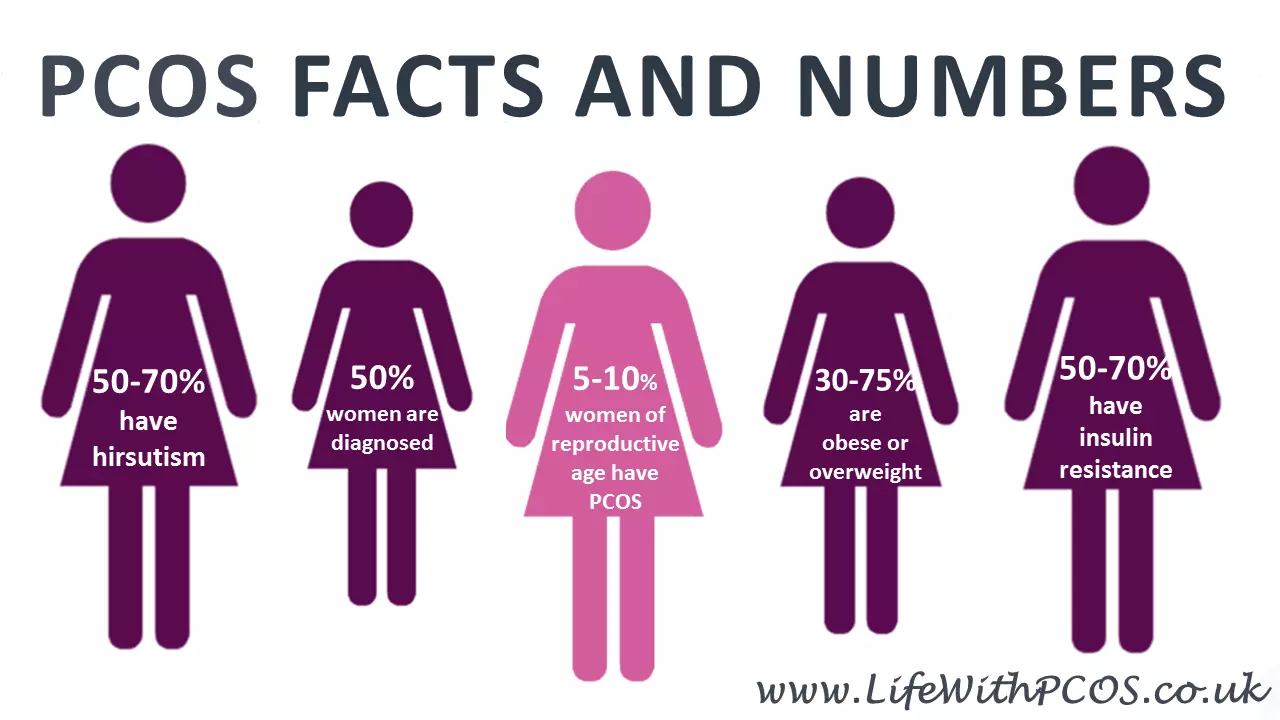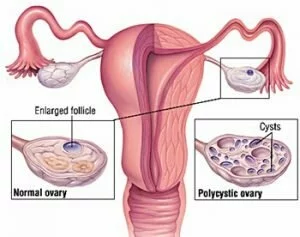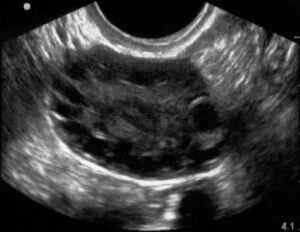What is PCOS? Polycystic ovary syndrome (PCOS) is one of the most common hormonal endocrine disorders in women. About 5-10% of women of reproductive age are affected by PCOS. In the UK this percentage is even higher - about 15% of women of reproductive age are to suffer with the effects of PCOS. However, it is difficult to know how precisely how many women nowadays have PCOS as it is an under-recognised condition.
There is no one medical test or syndrome that indicates PCOS and its syndromes vary from woman to women. It is estimated that only about half of women are appropriately diagnosed. PCOS is not curable but it is manageable. About 50% of PCOS women will develop type 2 diabetes or pre-diabetes before they are 40 and they are three times more likely to develop endometrial cancer.
Therefore, it is very important appropriate treatment of the PCOS starts as soon as a woman is diagnosed.

Diagnosis of PCOS
According to the Rotterdam criteria to be diagnosed with PCOS you need to have at least 2 of the following 3 features:
- irregular periods – which means your ovaries don't regularly release eggs (no ovulation)
- excess androgen – high levels of male hormones in your body (especially testosterone), which may cause physical signs such as excess facial or body hair
- polycystic ovaries – your ovaries become enlarged and contain many fluid-filled sacs called follicles (can be up to 8mm) which surround the eggs. These sacs are often unable to release an egg, which means that ovulation doesn't take place.


What are the PCOS symptoms?
- Irregular periods or no periods at all
- Difficulty in getting pregnant (as a result of irregular ovulation or failure to ovulate)
- Elevated insulin level
- Elevated testosterone level
- Excessive hair growth (hirsutism) – usually on the face, chest, back or buttock
- Weight gain
- Abdominal obesity
- Thinning hair
- Hair loss from the head ('male pattern baldness')
- Oily skin
- Acne
- Dandruff
- Sleep apnea
- Anxiety
- Depression
- Fatigue
How can PCOS be treated?
The exact cause of PCOS is unknown. However, we do know that it is linked to abnormal hormone levels in the body, including insulin. Insulin is a hormone that controls sugar levels in the body. Many women with PCOS are resistant to the action of insulin in their body and produce higher levels of insulin to overcome this. This contributes to the increased production and activity of hormones such as testosterone.
There's no cure for PCOS but the symptoms can be managed and treated. However, because PCOS is associated with an increased risk of developing health problems in later life, such as type 2 diabetes and high cholesterol levels it needs to be treated. Also, with treatment, most women with PCOS are also able to get pregnant.
Get in touch with your GP to consult your symptoms and start your treatment. Here are the most commonly prescribed medications/treatments by GPs:
- Change your diet - eat low glycemic load food, gluten and wheat free, diary free, as well as low in sugar
- Do some sport on a regular basis
- Insulin sensitizing drugs - such as Metformin
- Anti-androgens drugs - to help you to deal with acne and hair loss
- Waxing or laser treatment - to help you to deal with unwanted hair
- Birth control pill - if you are nor planning to start a family as it regulates your hormones and menstrual cycles
- Fertility treatment - to improve/stimulate your ovulation to help you to get pregnant
